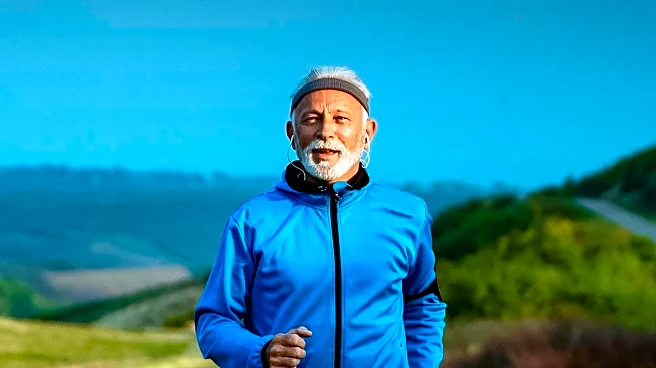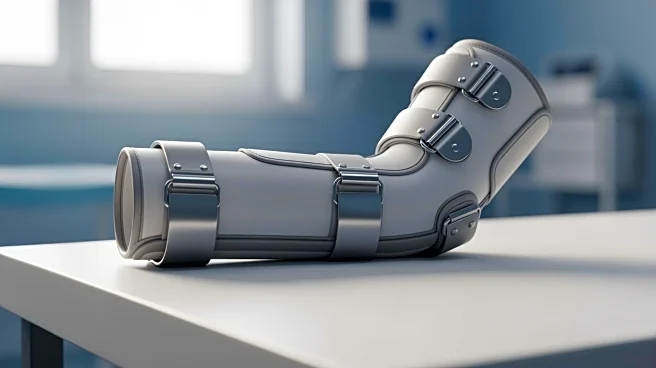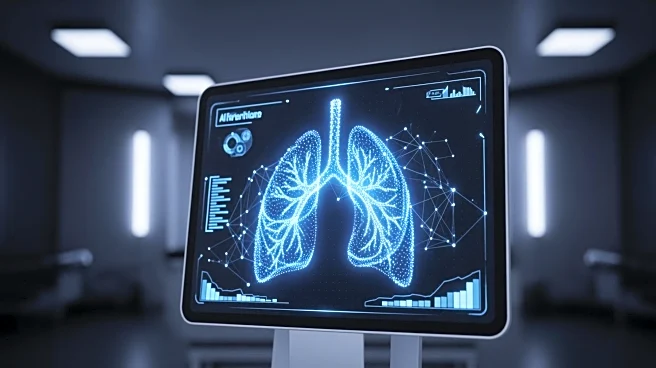What's Happening?
Sean Charles Dunn, a resident of Washington, D.C., is on trial for misdemeanor assault after throwing a sandwich at a U.S. Customs and Border Protection agent. The incident occurred outside a nightclub
on August 10, as Dunn protested against President Trump's law-enforcement surge in the capital. Defense attorney Julia Gatto argued that Dunn's action was a form of protest, not a crime, and described it as a 'harmless gesture' following his expression of free speech. The event was captured on a bystander's cellphone, gaining significant attention on social media and turning Dunn into a symbol of resistance. Despite a grand jury's refusal to indict Dunn on a felony charge, the U.S. Attorney's office pursued a misdemeanor charge. The trial has highlighted tensions between protest rights and law enforcement actions.
Why It's Important?
The case underscores the ongoing national debate over the limits of protest and the criminal justice system's response to acts of civil disobedience. It raises questions about the balance between free speech and public safety, especially in politically charged environments. The outcome could influence how similar cases are prosecuted in the future, potentially affecting activists and law enforcement policies. The trial also reflects broader societal divisions over President Trump's policies and the federal government's role in local law enforcement. Dunn's case has drawn attention to the Justice Department's handling of protest-related incidents, with implications for civil liberties and government accountability.
What's Next?
The trial's outcome will likely prompt reactions from various stakeholders, including civil rights groups, law enforcement agencies, and political commentators. If Dunn is acquitted, it may embolden protestors and challenge the Justice Department's approach to similar cases. Conversely, a conviction could deter acts of protest perceived as crossing legal boundaries. The case may also lead to discussions about the need for clearer guidelines on protest actions and law enforcement responses. Additionally, the trial could influence public opinion on the federal government's involvement in local policing, particularly in politically sensitive contexts.
Beyond the Headlines
The incident highlights the cultural and ethical dimensions of protest in the U.S., where acts of civil disobedience are often seen as a vital part of democratic expression. The case raises questions about the role of humor and symbolism in protest, as evidenced by the viral nature of the sandwich-throwing incident. It also touches on the potential for political bias in legal proceedings, given the involvement of high-profile figures and the media's portrayal of the event. The trial may prompt a reevaluation of how protest actions are perceived and prosecuted in a polarized political climate.









